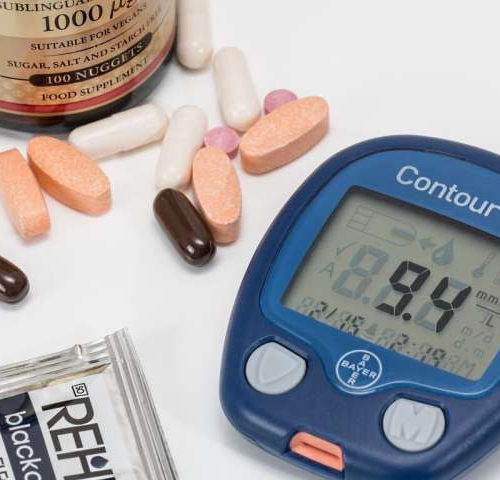by Uppsala University Patients with type 2 diabetes secrete not only too little insulin but also too much glucagon, which contributes to poor blood glucose control. A new study from Uppsala University suggests that this is because the glucagon-secreting α-cells have become resistant to insulin. In healthy individuals, insulin signals the body to absorb glucose,...
Tag: <span>Blood glucose</span>
Loss of gland in eyelids may be a biomarker for elevated blood glucose in diabetes
THE ENDOCRINE SOCIETY WASHINGTON–In patients with diabetes, loss of the gland that helps lubricate the eye may be a sign of elevated blood glucose levels, according to research accepted for presentation at ENDO 2020, the Endocrine Society’s annual meeting. The study will be published in a special supplemental section of the Journal of the Endocrine...
Why exercise is less helpful in losing weight than simply eating less
by Juan Ignacio Pérez Iglesias, The Conversation I tend to be overweight, and for the last few years my blood glucose levels have been putting me on the brink of Type 2 diabetes. I love my food, and it is often part of my social commitments. I’m a Spaniard, so there’s also the occasional tapas...
Time-restricted eating shows benefits for blood glucose
UNIVERSITY OF ADELAIDE By restricting the time period during which they could eat, researchers have seen promising results for controlling blood glucose levels in men at risk of type 2 diabetes. In a small study now published in the journal Obesity, researchers from the University of Adelaide and the South Australian Health and Medical Research Institute (SAHMRI) assessed the effects of time-restricted eating (TRE)...
Time-restricted eating shows benefits for blood glucose
UNIVERSITY OF ADELAIDE By restricting the time period during which they could eat, researchers have seen promising results for controlling blood glucose levels in men at risk of type 2 diabetes. In a small study now published in the journal Obesity, researchers from the University of Adelaide and the South Australian Health and Medical Research Institute...
Leaving two-hour gap between dinner and bedtime may not affect blood glucose – diabetes – patient education
Leaving a two-hour gap between the last meal of the day and bedtime doesn’t seem to be associated with any discernible difference in blood glucose levels among healthy adults over the long term, suggests Japanese research published in the online journal BMJ Nutrition, Prevention & Health. Credit: CC0 Public Domain Avoiding eating a meal or...
- 1
- 2

